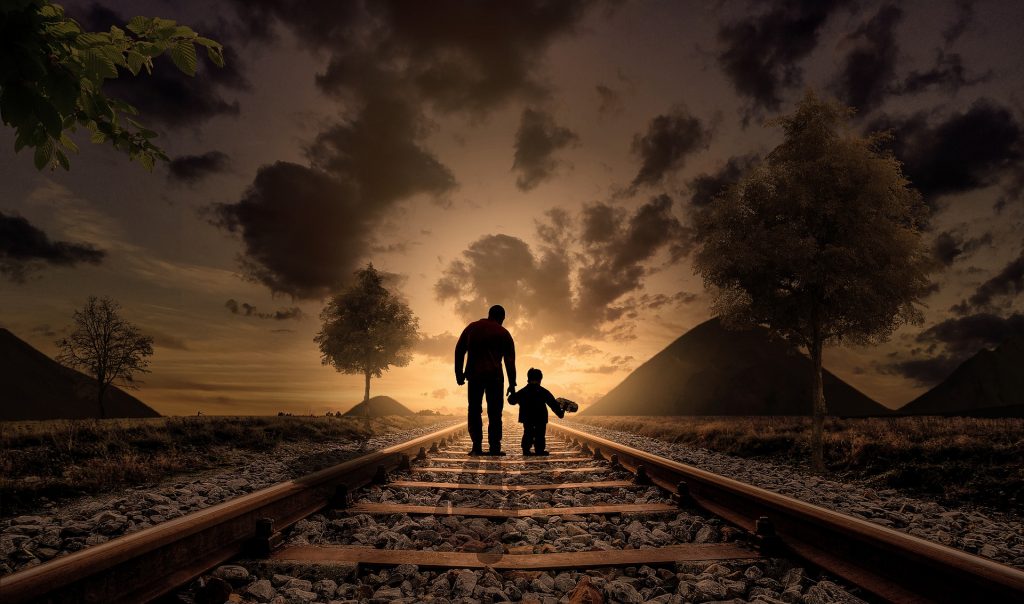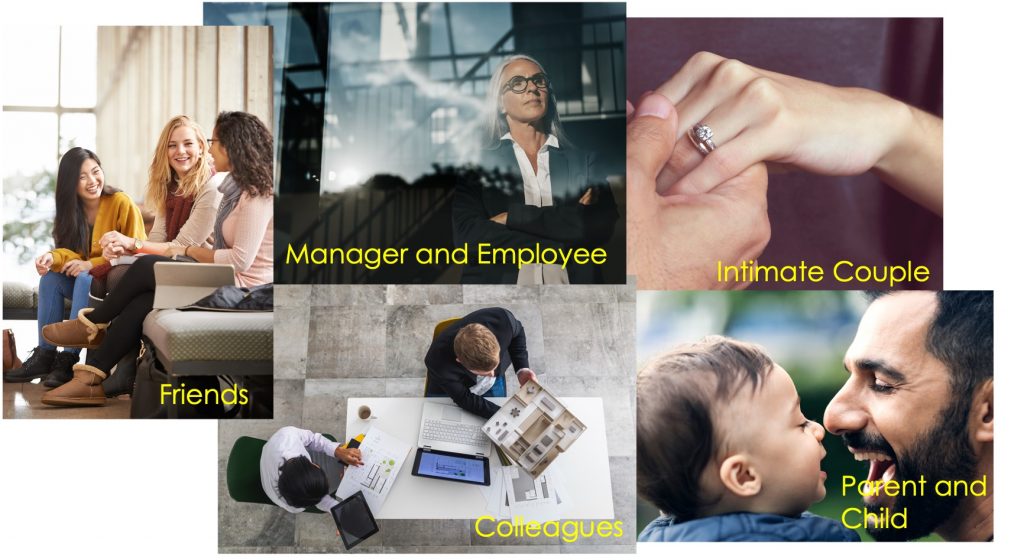
Without thinking about it, we create interpretations of what someone we encounter means to us. Are they a colleague, manager, subordinate? Are they an enemy, acquaintance or a friend? How we define a relationship will determine our sense of the role or roles we take on within that relationship.
The nature of our relationships is formed in the social reality of our communities. We learn that we can be a friend, a parent, a daughter, a son, a colleague ad infinitum. We also learn norms about being a good friend, a good colleague, a good lover, a good parent and so on.
Although they may be nurtured by others’ stories about relationships and our observations of how others relate to each other, we each adopt our own interpretations of what that all means. So, even though we may have a shared sense of what roles we should play in a relationship, our interpretation will be unique to us.
As we are always engaging with possible futures, we can also anticipate how a relationship evolve. Could this person be a good friend or a lover?
A challenge to forming healthy relationships lies in developing shared interpretations about the nature of those relationships with the others who are involved. Generally, people do not have explicit conversations about this and are left to guess a relationship’s nature by the other’s words and actions. Differing interpretations create breakdowns which are used to assess the nature of the relationship.
For instance, people often get married or become parents without much conversation about what that means to those involved. “Where is this relationship going?” is a common question we ask ourselves but generally not others until we feel we have to do so.
One reason we tend not to speak directly about the nature of relationships is we generally do not understand them ourselves. Another reason lies in our propensity to avoid confrontation and a fear of having our hopes dashed. We gain our impressions of what it means to be a manager, parent, friend and so on simply from observing and listening to others. Our interpretation of our role in a relationship is our creation of a story that evolves over time. The breakdowns involving other people result from those stories. Each of these breakdowns presents us with a chance to reflect on our story about this particular relationship and why this might be a concern for us. This reflection allows for us to:
- Better understand our story about this relationship, its nature and what we expect of another;
- Develop a more coherent story about what makes a good relationship of this nature; and
- Make requests seeking commitments to improve the relationship and redefine how we relate going forward.
It is common for someone to see themselves purely in terms of the role they have taken in life. People often feel trapped in their self-defined roles or the roles as defined by others. This may come from a sense of duty; a fear of not knowing who they could become; the perceived threat of leaving a role and what they will lose as a result. The list is large. Suffice to say, much of our suffering comes from the roles we adopt and our inability to recognise that it is we who create those roles and we who can redefine them.
